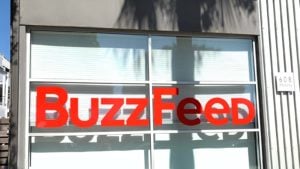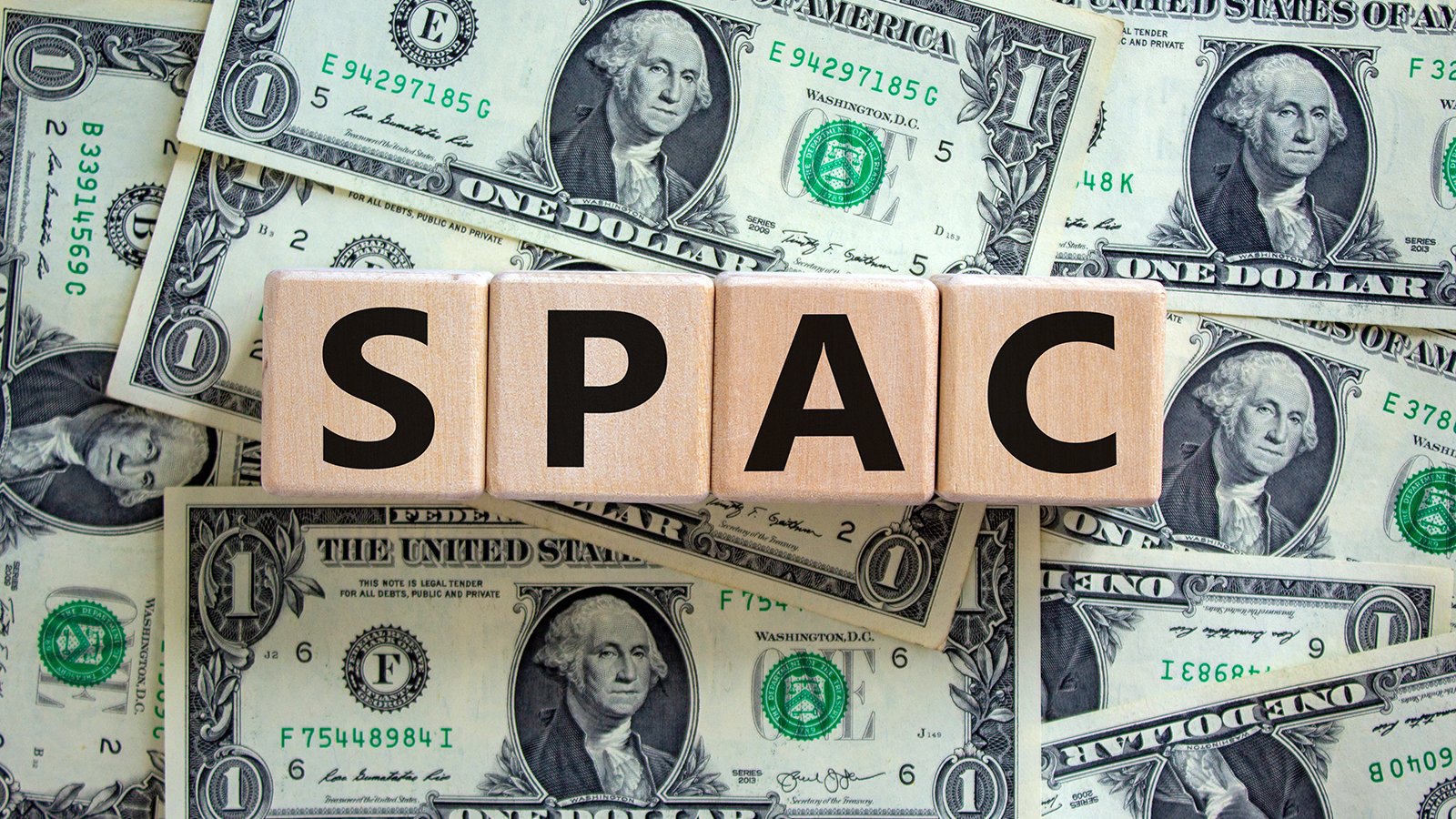Special purpose acquisition companies (SPACs) have had a dreadful past six months. After a big run in the early part of 2021, the market became flooded with SPACs. As economics predict, when the supply of something greatly exceeds demand, the price plunges. Too many SPAC sponsors were looking for a quick paycheck and launched shoddy deals at the height of the mania.
With SPAC prices down sharply across the board, there are a lot of good values today. Many investors have sworn off ever touching a SPAC again. When that happens, there are often bargains to be had, and that’s true of the SPAC landscape today.
But not all fallen SPACs will get back up. Some of them appear to have had fatally flawed business models from the start. A lot of these deals were done in haste and the target company simply doesn’t have great prospects as a publicly-traded company. Here are seven such SPACs that, even though their stocks have slumped, are clear names to avoid in 2022:
- AppHarvest (NASDAQ:APPH)
- Allied Esports Entertainment (NASDAQ:AESE)
- Hall of Fame Resort & Entertainment Company (NASDAQ:HOFV)
- Buzzfeed (NASDAQ:BZFD)
- Lottery.com (NASDAQ:LTRY)
- Canoo (NASDAQ:GOEV)
- Social Capital Suvretta Holdings Corp III (NASDAQ:DNAC)
SPACs to Skip in 2022: AppHarvest (APPH)

AppHarvest intended to reshape farming by growing high-value crops in greenhouses. Your mind may initially think of marijuana, seeing as that’s been an investing trend in the last few years. But no, AppHarvest has initially concentrated on tomatoes. In theory, this was supposed to be a profitable operation that would help deliver more produce to consumers. In practice, it appears to be a total failure.
The company’s dismal financial results should make it clear that this is not the future of farming. For full-year 2021, AppHarvest anticipates generating less than $8 million of revenues. Meanwhile, it will lose roughly $70 million on an adjusted EBITDA basis. Needless to say, losing $70 million on sales of $8 million is an utter and complete travesty.
AppHarvest intends to open more farms in 2022. Though, given the almost preposterously bad results from the existing business, it’s unclear how sinking more money into this experiment will fix anything. The company recently inked a deal to sell $100 million of new equity. At current share prices, that would result in a massive amount of dilution for already suffering shareholders.
Given AppHarvest’s massive operating costs and minimal revenues, there is little sign of any plausible long-term business model here. I fear that APPH stock may end up nearly worthless in due time.
Allied Esports Entertainment (AESE)

With Allied, we’ve got the old bait-and-switch. At the time of the SPAC offering, investors thought they were going to get in on the ground floor of the esports industry. Video gaming is booming, and online gaming competitions are becoming a major cultural trend in their own right. Microsoft’s (NASDAQ:MSFT) recent move to acquire Activision Blizzard (NASDAQ:ATVI) should further that excitement.
However, Allied has decided to exit the esports industry. It sold its poker business in 2021. And it has signed a letter of intent to sell its main egaming business as well. It says that the pandemic caused live events in the esports industry to largely shut down, depriving it of needed event revenue.
Regardless, management has cash on the balance sheet from selling the poker business. You’d think it could wait for events to return to normal. Instead, it is selling the esports business now, while it is generating negative EBITDA. This means it is unlikely to get a full valuation for the business. Instead, the company says it is looking for potential mergers in a different industry. Perhaps they will find something more productive to do going forward.
However, it’s unclear why investors should stick with a company that is already exiting the industry it pitched its investors on so recently. If Allied Esports couldn’t deliver in its primary industry, there’s little reason to hang around and see what the company does next.
SPACs to Skip in 2022: Hall of Fame Resort & Entertainment Company (HOFV)

This will go down as one of the all-time worst SPACs, at least in my book. Quick, think about all the possible things you could buy with a SPAC. If you came up with a football hall of fame and water park in Ohio, then have I got an investment for you.
As you might expect, HOFV stock has been a complete fiasco since its SPAC deal completed. The company’s financials already were dreadful. Then Covid-19 hit, turning things from bad to worse.
Adding more humor to the situation, Hall of Fame Resort hasn’t even built its water park yet. It intended to fund the construction of this new tourist mecca in rural Ohio with shareholder funds. However, with the stock now selling for barely more than a dollar, it’s unclear how the expansion plans will come to pass.
The company generates less than $10 million per year in revenues and lost more than $37 million over the past 12 months. The company purports to have big plans in terms of tourism, media and non-fungible tokens (NFTs), among other things. But with its dreadful balance sheet and dismal operating results, it seems this vision will not come to pass anytime soon. Even with the stock under $1.50, there’s still a lot farther to fall; I expect shares will end up close to worthless.
Buzzfeed (BZFD)

Late in 2021, online media company Buzzfeed went public. The stock quickly dropped more than 50%. And you’ll never believe what happened next.
That’s right, the internet’s leading purveyor of clickbait articles and cat videos is now listed on the NASDAQ. However, arguably, Buzzfeed missed its moment. And here are 32 reasons why. Okay, I’ll stop with the Buzzfeed headline jokes. In all seriousness though, the company’s content used to get a lot more attention, say, five years ago. It was perfect for going viral on Facebook (NASDAQ:FB) back in the day.
As the internet landscape has shifted, however, viral content driven by ad-based business models doesn’t have the same mass appeal as it used to. Nowadays, consumers prefer content that they trust on specific websites rather than just clicking random stuff off Facebook. Subscription media is where the growth is. Meanwhile, according to Google trends, search traffic for Buzzfeed has collapsed in recent years as well.
Buzzfeed is actually slightly profitable, which beats a lot of SPACs. However, management had guided to nearly $50 million of EBITDA for the company in 2021 with rapid growth in 2022 and 2023. Instead, through the first nine months of 2021, it produced just over $7 million in EBITDA and is not growing. That’s quite a miss. With the internet moving away from viral clickbait types of content, it’s hard to see how Buzzfeed will meet its initial rosy SPAC projections anytime soon.
SPACs to Skip in 2022: Lottery.com (LTRY)

Lottery.com is a recent SPAC that is focused on the online gaming market, as its name would suggest. The company offers players the ability to buy tickets in state-sanctioned lotteries over the internet. It also has an app, so people can gamble on their local powerball or other such games from the comfort of their own home.
In theory, there’s nothing wrong with this business. The company earns reasonable gross margins on its ticket sales. It has strong distribution partners, and is well-received by local states, since it is an easy way to broaden the total addressable market of a state lottery program.
The issue simply comes in market size. Do many people really want to buy lottery tickets on their phones? With the proliferation of sports gaming and other flashier, new options, I’m skeptical that there’s a big market for lottery tickets at home. The lottery ticket experience seems more fitting with purchase at a grocery or convenience store when someone wants to have a quick moment of fun among errands. At home, compared to all other entertainment options, however, I’m not sure lottery tickets are a major draw.
In any case, Lottery.com shares are still trading at more than five times trailing revenues. This doesn’t seem like much of a discount for a niche business such as this one.
Canoo (GOEV)

It’d be easy to give Nikola (NASDAQ:NKLA) a spot on this list. After all, the infamous roll-the-truck-down-a-hill company is still at $8.50 per share. That seems awfully high for a firm that used deception to raise funds in the first place. However, Nikola kicked out the prior management team and has actually built a factory in Arizona to produce vehicles. Will it work out? Who knows. However, there’s actually a worse stock in the EV space today.
That would be Canoo. When Canoo went public it forecast delivering 10,000 vehicles in 2022 with this rising to 150,000 of volume in 2026. The company would generate more than $4 billion of revenues in 2026 and nearly $1 billion in annual EBITDA. It sounded like an amazing plan.
But, as often happens to pre-revenue SPACs that go public, the plan was soon discarded as soon as investors bought stock. Co-founder and CEO Urlich Kranz resigned just months after the company went public. Canoo’s new leadership soon announced that it was abandoning its plans to offer contract engineering services to firms such as Hyundai (OCTMKTS:HYMTF). It also gave up on its previous subscription fleet business model. So much for the billions of projected revenues.
It has now pivoted and is trying to launch vehicles to sell to the public. The company has said that it will need somewhere along the order of half a billion dollars to start production. Meanwhile, its cash pile is down to $415 million as of last quarter and is shrinking by around $100 million every three months. Given that, it seems another fundraising effort will be coming soon. Given the complete lack of credibility that Canoo has along with the likely upcoming dilution, GOEV stock is a clear avoid.
SPACs to Skip in 2022: Social Capital Suvretta Holdings Corp III (DNAC)

DNAC stock is one of the latest offerings from former SPAC king Chamath Palihapitiya. Early in 2021, Palihapitiya was riding high, with SPAC deals such as Virgin Galactic (NYSE:SPCE) and Opendoor (NASDAQ:OPEN) looking like big winners. However, those have plunged back to $10. Meanwhile, other Chamath SPACs have totally imploded. Clover Health (NASDAQ:CLOV), for example, has lost more than 70% of its value since finishing its SPAC merger.
Chamath is back on the trail with his Social Capital Suvretta Holdings. It recently announced that it will be buying ProKidney, a biotech company which is focused on restoring kidney function in patients.
ProKidney may or may not be a good company, only time will tell. However, Chamath’s reputation is pretty much shot at this point. That’s both due to the terrible performance of his SPAC deals and also his unsavory public comments on other topics. For example, he recently ignited a public firestorm after saying that “nobody cares” about human rights abuses against Uyghurs in China.
Companies associated with Chamath, including Virgin Galactic and the Golden State Warriors basketball team distanced themselves from the financier following these remarks. I expect that investors will avoid his latest deals, especially including a speculative biotech operation such as ProKidney. I expect DNAC shares to trade sharply lower once the SPAC merger process is complete.
On the date of publication, Ian Bezek held a long position in FB stock. The opinions expressed in this article are those of the writer, subject to the InvestorPlace.com Publishing Guidelines.
Ian Bezek has written more than 1,000 articles for InvestorPlace.com and Seeking Alpha. He also worked as a Junior Analyst for Kerrisdale Capital, a $300 million New York City-based hedge fund. You can reach him on Twitter at @irbezek.
